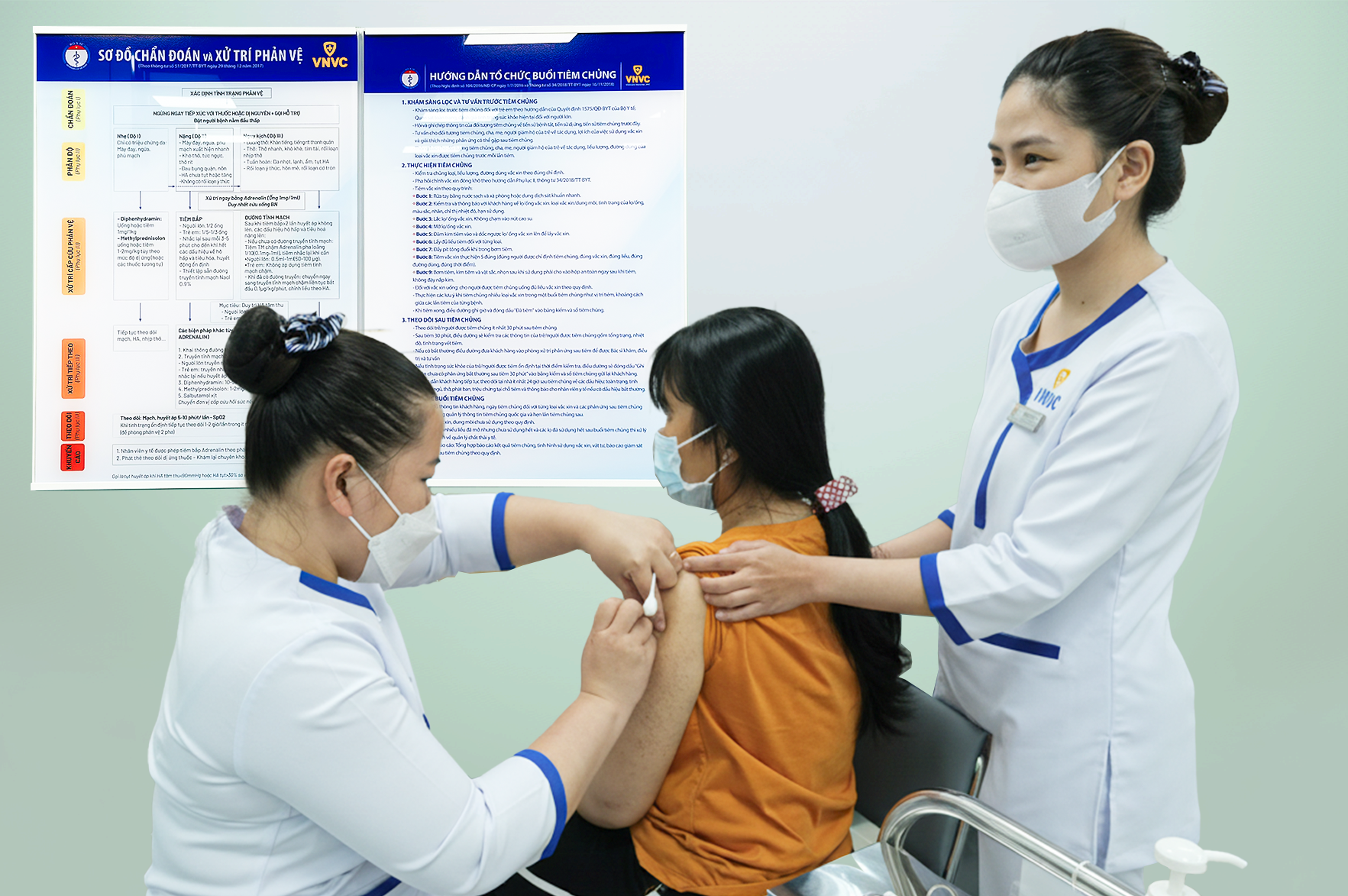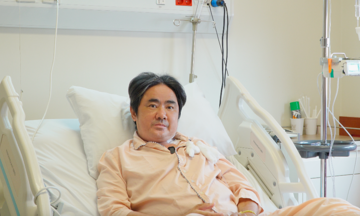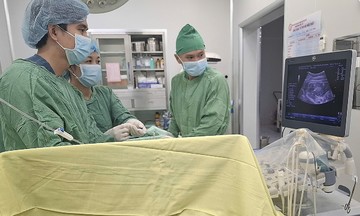Dr. Bui Cong Su, Medical Manager of VNVC Vaccination System, shared this information following a Facebook post by actor Phuong Nam, who played Ta in the film "Mua do" (Red Rain), about his hospitalization for influenza A. Dr. Su explained that upon entering the body, the influenza A virus damages the respiratory epithelium. This causes symptoms such as high fever, headache, sore throat, runny nose, dry cough, body aches, loss of taste, and reduced appetite.
Typically, the illness is mild and resolves on its own. However, in individuals with weakened immune systems or those who receive improper treatment, the virus can multiply and attack other organs, leading to otitis media (middle ear infection), sinusitis, pneumonia, myocarditis (inflammation of the heart muscle), respiratory failure, multiple organ failure, and sepsis. The risk of prolonged and severe illness is higher in the elderly, those with chronic illnesses, pregnant women, and young children.
 |
A patient with severe influenza A receives treatment at the National Hospital for Tropical Diseases, 2/2025. Photo: National Hospital for Tropical Diseases |
A patient with severe influenza A receives treatment at the National Hospital for Tropical Diseases, 2/2025. Photo: National Hospital for Tropical Diseases
The influenza virus can also lead to co-infections with other agents such as Streptococcus pneumoniae and Staphylococcus aureus, increasing the risk of pneumonia, meningitis, and sepsis. For example, in patients with chronic obstructive pulmonary disease (COPD) or asthma, a weakened respiratory system makes them more susceptible to influenza-induced pneumonia, increasing the risk of hospitalization, mechanical ventilation, and death. In individuals with diabetes, influenza can cause erratic blood sugar fluctuations, making it more challenging to manage the disease. Pregnant women with influenza have an increased risk of miscarriage, stillbirth, premature birth, and low birth weight babies.
Therefore, Dr. Su advises against complacency regarding influenza A. Upon experiencing symptoms, individuals should seek medical attention as soon as possible and avoid self-treating at home. Patients should also maintain a nutritious diet, stay hydrated, and get plenty of rest. If experiencing loss of appetite, patients should consume easily digestible foods like porridge, soup, and fruit smoothies.
Families and patients should avoid unproven treatments for influenza or using antibiotics without a doctor's prescription. This can worsen the illness.
The influenza virus spreads easily through coughing, sneezing, and talking. Crowded places like daycare centers, schools, parks, dormitories, and offices facilitate the virus's transmission. For prevention, everyone should get an annual influenza vaccine and practice preventive measures such as wearing masks in crowded places, frequent handwashing, and keeping the throat and nose warm.
 |
Adults receive influenza vaccines at the VNVC Tan Kien Center, Tan Nhat Commune, TP HCM. Photo: Dieu Thuan |
Adults receive influenza vaccines at the VNVC Tan Kien Center, Tan Nhat Commune, TP HCM. Photo: Dieu Thuan
Currently, influenza vaccines are proven to protect against common influenza A strains like H3N2, H1N1, and influenza B strains. There are 4 types of influenza vaccines. Those from France, the Netherlands, and South Korea are suitable for children from 6 months old and adults. The Vietnamese vaccine is for people aged 18 to 60. Children aged 6 months to under 9 years require two doses at least one month apart if they have never been vaccinated against influenza. People aged 9 and above only need one dose. An annual booster shot is recommended.
The influenza vaccine can be administered at any time of year. Women can receive it during any stage of pregnancy, preferably from the 4th month onwards, to protect their health and provide passive immunity to their babies.
In addition to the influenza vaccine, Vietnam also has 5 pneumococcal vaccines: pneumococcal 10, 13, 15, 20, and 23, which help prevent pneumonia, meningitis, otitis media, and sepsis. Doctors will recommend an appropriate vaccination schedule based on age and vaccination history.
Tuan An












